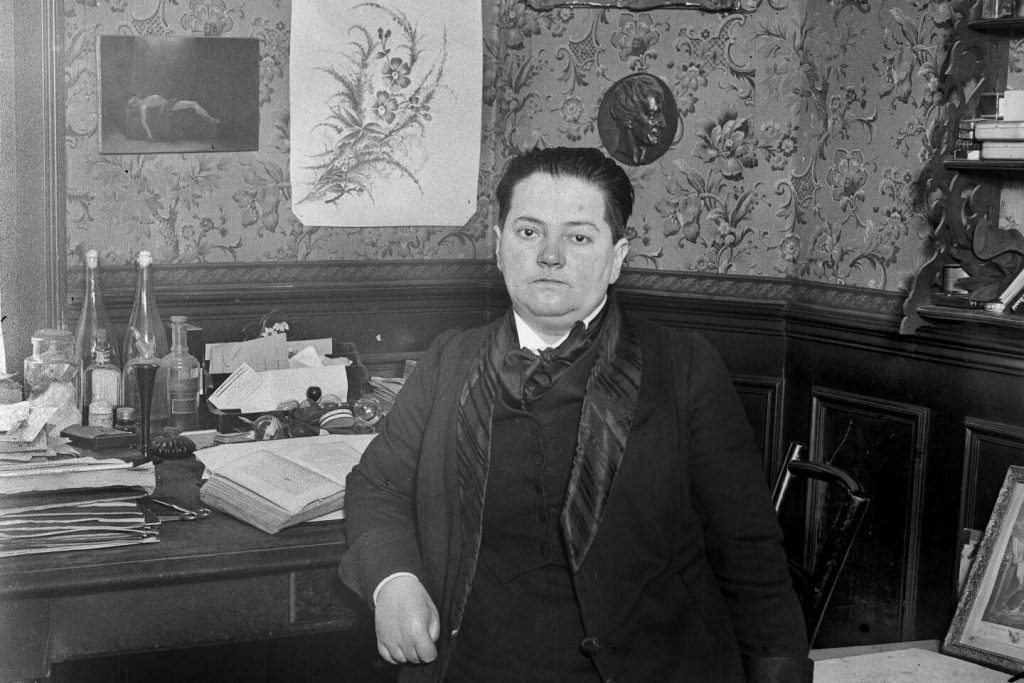Madeleine Pelletier, a feminist activist, was born in 1874 and died in 1939. She was often misunderstood, scorned, and mocked during her lifetime, but her writings have been rediscovered and published by historian Christine Bard in the book “Memoirs of an Integral Feminist.” Pelletier’s autobiography, written during the early weeks of World War I, reflects her belief that she was born in the wrong era. President Emmanuel Macron recently honored her in a speech celebrating the freedom to access abortion in the Constitution. Despite her struggles and obscurity, Pelletier’s work remains relevant today.
Pelletier’s writings were almost lost to history due to the precarious nature of their preservation. The manuscripts were passed down through various means, including to an unofficial archivist for radical feminists. These documents were at risk of being lost altogether until a society was formed to preserve them, and they eventually found a home at the Historical Library of the City of Paris in 1980. The fragility of the chain of transmission of these feminist archives is highlighted by Bard, emphasizing that they were saved thanks to proactive initiatives by activists.
The collection of Pelletier’s writings also includes her wartime journal, although only a typewritten version remains as the original was lost or stolen in the 1990s. Additionally, the last piece of the collection, a poignant recount of her childhood dictated to a friend shortly before her death in an asylum, is kept at the Marguerite-Durand Library in Paris. Bard underscores the importance of these feminist archives being preserved through grassroots efforts rather than traditional avenues, showcasing the dedication and perseverance of those committed to ensuring Pelletier’s legacy endures.
The publication of “Memoirs of an Integral Feminist” sheds light on Pelletier’s life and beliefs, providing insight into her struggles and convictions. Despite the challenges she faced, Pelletier’s work has continued to resonate with contemporary audiences, prompting a reevaluation of her contributions to feminist discourse. Macron’s recent recognition of Pelletier’s legacy in a speech honoring the right to access abortion demonstrates a newfound appreciation for her impact and relevance in today’s society.
Pelletier’s inclusion in the feminist canon serves as a reminder of the importance of acknowledging and honoring the contributions of women in history, particularly those who have been marginalized or overlooked. By revisiting Pelletier’s writings and uncovering her story, a new generation of readers can gain a deeper understanding of the feminist movement and the struggles faced by women throughout history. The rediscovery of Pelletier’s work serves as a testament to the resilience and tenacity of feminist activists who have worked tirelessly to preserve the legacies of those who have paved the way for future generations.















